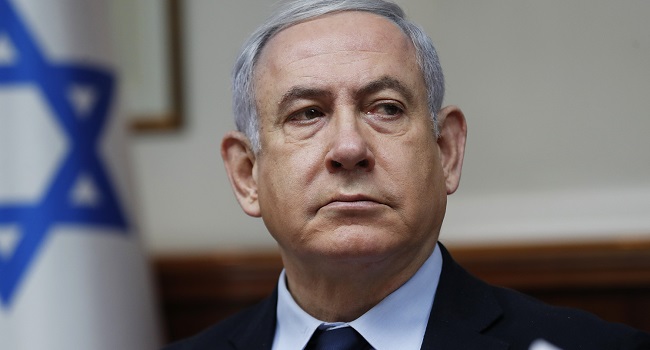US Secretary of State Mike Pompeo is due in Jerusalem on Monday to start a tour focused on Israel’s normalising of ties with the UAE and pushing other Arab states to follow suit.
After meeting Prime Minister Benjamin Netanyahu, he is set to visit senior figures in Sudan, Bahrain and the United Arab Emirates, the State Department said Sunday.
Israel had previously only signed peace treaties with Egypt and Jordan, two neighbours with which it had technically been at war, unlike the United Arab Emirates.
Following the US-sponsored deal announced on August 13, the new partners say they want to promote trade, especially the sale of Emirati oil to Israel and Israeli technology to the Emirates, as well as boosting tourism by establishing direct air links.
Key to that plan would be persuading Saudi Arabia to open its airspace, between Israel and the Gulf, to Israeli commercial airlines.
During his visit, Pompeo will “discuss regional security issues related to Iran’s malicious influence (and) establishing and deepening Israel’s relationships in the region,” the State Department said in a statement.
President Donald Trump’s Middle East peace plan, announced in January, saw cooperation between Israel and those Arab countries who, like Israel, see Iran as their main foe.
It also gave the Jewish state a green light to annex parts of the West Bank — something Israel committed to “suspending” under the UAE deal, without saying for how long.
The Palestinians have slammed the UAE’s move as a “stab in the back” while their own conflict with the Jewish state remains unresolved.
But the UAE ambassador to Washington, writing on the front page of Israel’s top-selling daily, said closer ties would benefit everybody.
“They will help move the region beyond the ugly legacy of hostility and conflicts, towards a destiny of hope, peace and prosperity,” he wrote in Yediot Aharonot’s weekend edition.
– F-35 in the crosshairs –
Tel Aviv daily Israel Hayom, a staunch backer of Prime Minister Benjamin Netanyahu, wrote Sunday that direct talks between the sides on the wording of the deal were close to starting and “a full agreement could be reached within a month.”

A signing ceremony is set to be held at the White House within that timeframe, the paper wrote.
Reports that the agreement hinges on the sale of US F-35 Stealth jets to the Emirates have been vigorously denied by Netanyahu, who says he opposes the move as it could reduce Israel’s regional strategic edge.
“The Emiratis are saying there was a promise there, the Israelis are saying no,” said Joshua Teitelbaum, professor in the department of Middle Eastern studies at Bar Ilan University, near Tel Aviv.
Historically, Israel (which has F-35s) has opposed the sale of advanced weaponry to other Middle East states, even Jordan and Egypt with which it has peace treaties.
But Teitelbaum said that in the past such objections have been finessed, citing the US sale to Israel and Saudi Arabia of F-15 fighters.
“From what I understand arrangements are made that the version that the Arab country gets is not the absolute latest version,” he told AFP.
“Israel is allowed to put certain modifications in the software that allow it to maintain its edge.”
There can also be cost advantages as a sweetener, he said.
“The Israeli F-15s and the Saudi F-15s were made in the same factory” in the US, he went on.
“The fact that Israel gave its wink to the Saudi F-15s allowed the actual price to be lowered for the Israelis, because it allowed the assembly line to run (longer) at that factory.”
– Bahrain, Oman, Sudan? –
The surprise announcement of the Israel-Emirati pact sparked huge speculation on who might be next, with frequent mentions of Bahrain and Sudan, which is turning its back on the Omar al-Bashir era.
Israel remains technically at war with Sudan, which for years supported hardline Islamist forces.
Sudan’s foreign ministry spokesman was fired last week after he made allegedly unauthorised comments indicating contact had been made with Israel regarding normalising ties.
But the State Department said Pompeo would meet Sudanese Prime Minister Abdalla Hamdok during his tour, to “express support for deepening the Sudan-Israel relationship”,
He will also meet Bahrain’s Crown Prince Salman bin Hamad Al-Khalifa before meeting UAE foreign minister Abdullah bin Zayed Al-Nahyan to discuss the Israel deal, it said.
Saudi Arabia, in keeping with decades of policy by the majority of Arab states, has said it will not follow the UAE’s example until Israel has signed a peace deal with the Palestinians.
AFP















